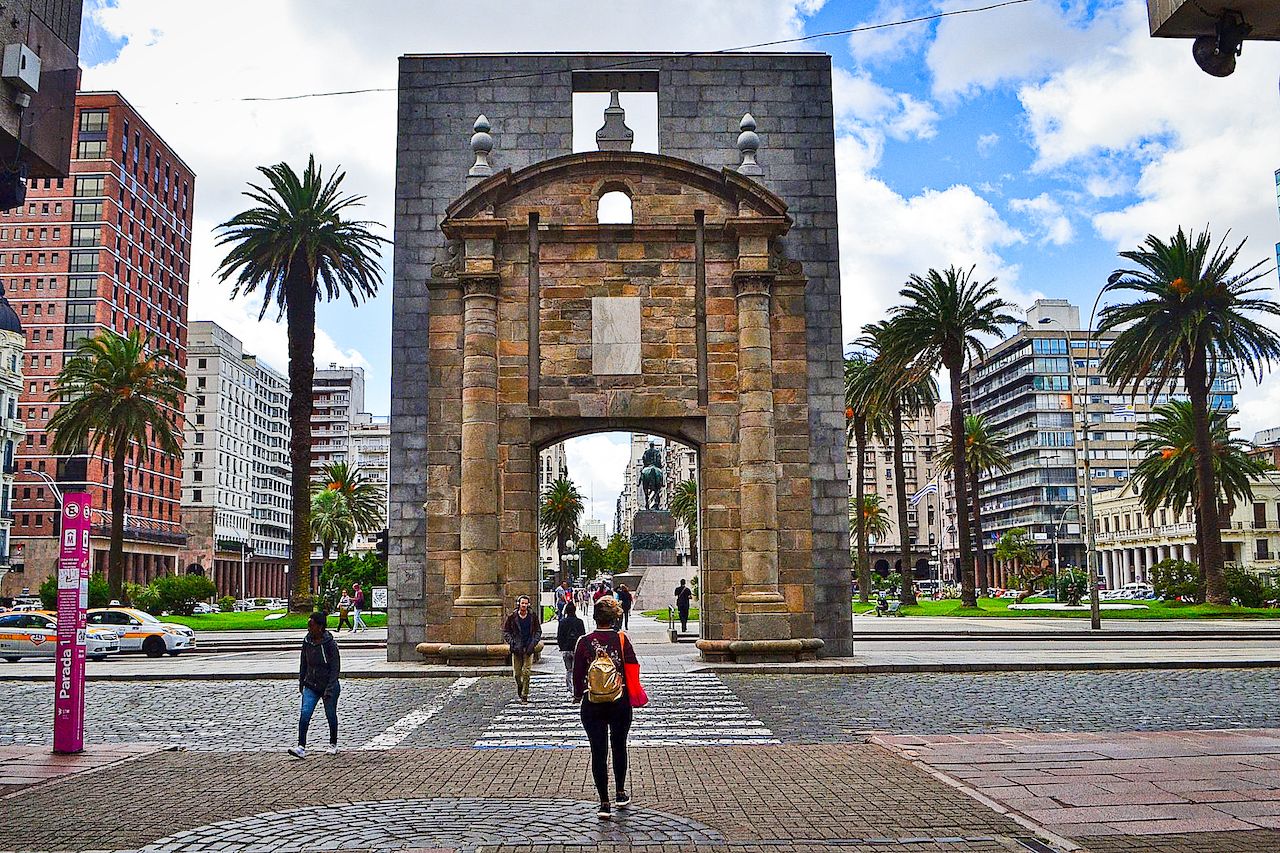Return to the search form Return to your search results
USAC Montevideo Program
Fast Facts
Sessions Offered:
Fall, Spring, Academic Year, Summer, Winter
Location:
Montevideo, Uruguay
Credit:
Resident
Eligibility:
2.5 GPA. Good academic and disciplinary standing.
Application Due:
Fall - Feb 24
Academic Year - Feb 24
Winter - Oct 1
Spring - Sep 19
Summer - Mar 4
Program Cost:
Click the Application tab.
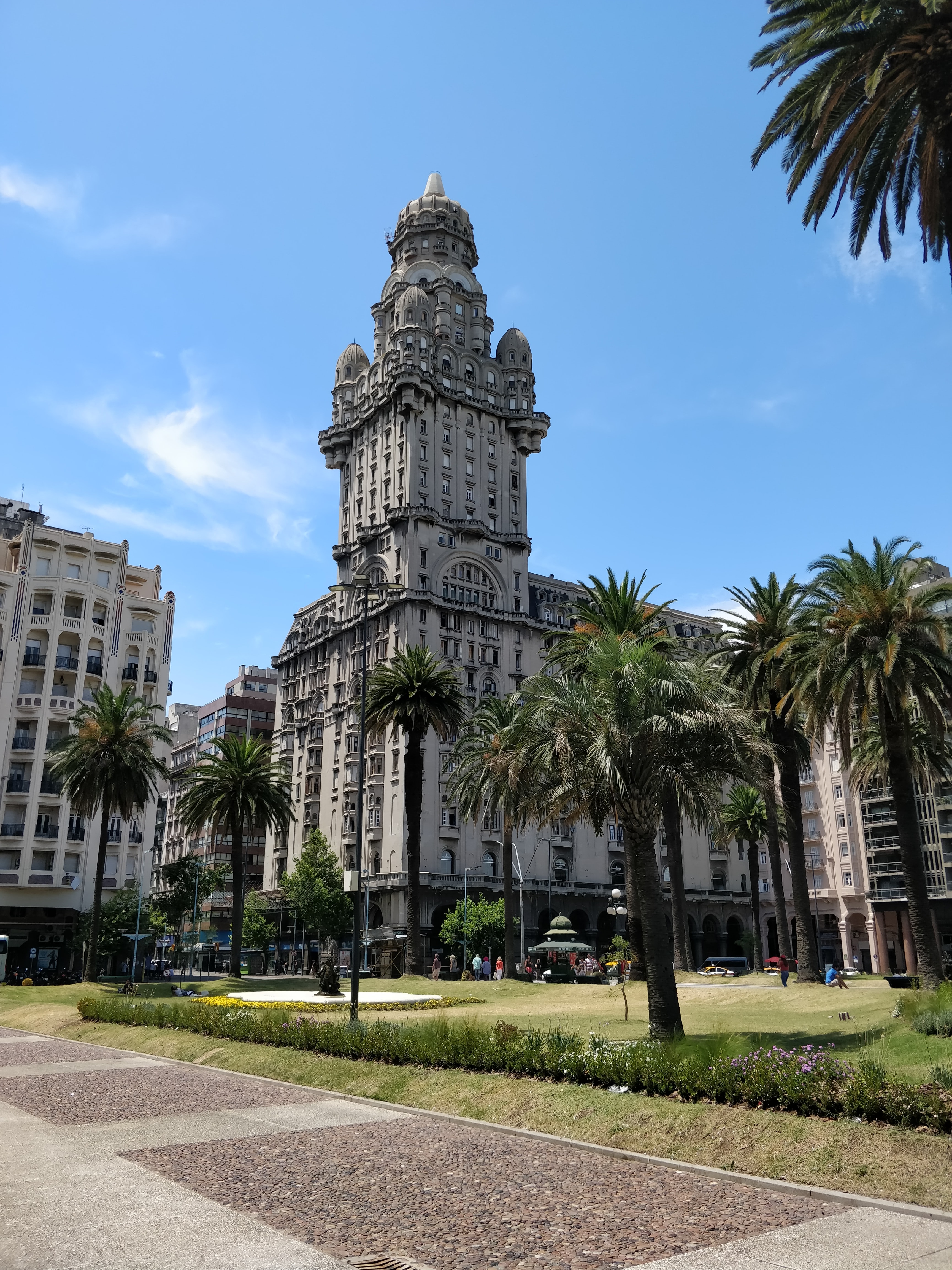
This program focuses on business, gender studies, Latin American studies, and Spanish language. The academic courses are only a part of the value of USAC Studies in Uruguay as students have the opportunity learn about contemporary Uruguayan society through personal interaction and immersion in the the host culture. The program is administered by the University Studies Abroad Consortium (USAC), of which the University of Iowa is a member. The USAC Resident Director and staff are present on-site full-time to welcome and support students during their term abroad. UI students earn resident credit on this program.
Academic Program
Semester
Students enroll in 12 - 18 semester hours comprised of language courses plus electives in Latin American studies, business, and gender studies. Spanish language study is done according to Tracks that align with students' abilities. Two semesters of college-level Spanish language can be completed in one semester. All students must complete a minimum of one language courses, but it is strongly encouraged that students complete both courses. Language study is highly encouraged as it will increase students understanding of Uruguayan culture and equip students with language and cross-cultural skills that will be beneficial to daily life while abroad.
Summer
During the five week summer session students take three to seven semester hours of coursework consisting of at least one - three semester hour course. Course subjects include Spanish language courses, Latin American studies, business, and gender studies.
Winter
Students will enroll in 3 credits during this 3 week winter session, choosing from the areas of Spanish Language & Literature Studies or Latin American Studies
All courses are taught exclusively for program participants by local Uruguayan faculty. Students take their courses at the Pocitos campus of ORT.
USAC Montevideo Program website.Cultural Activities
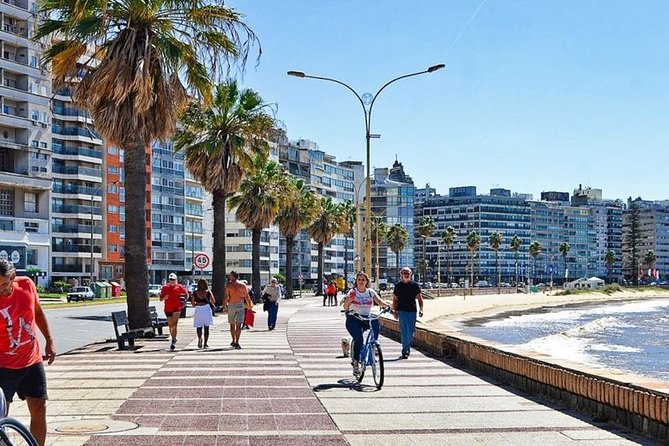
Many organized field trips are included in your program fee. These field trips may take students to Pan de Azucar, a nature reserve and zoo, where students discover native animals such as the carpincho, ñandú, and yaguareté. Students may travel to Minas in the interior of Uruguay and Punta del Este, a beautiful beach resort. Many course-related field trips and activities are organized throughout the semester. USAC Montevideo believes that not classrooms have four walls and that exploration and interaction with the city and beyond is essential. Some of the field trips and activities may include visiting Museo Nacional de Artes Visuales, Museo del Fútbol, Palacio Slavo, and Teatro Solis. Students may have the opportunity to participate in festivals, visit local businesses, farms and social-environmental projects, and volunteer in several local projects.
Program Dates
Fall: Late August to mid-December
Spring: Late January to mid- May
Summer: Late May to early July
For more information
Steps to Studying Abroad
- Before initiating an application with USAC, students must complete a Discover Study Abroad session at the University of Iowa.
- After completing the Discover Abroad session, students will receive an email with their study abroad advisor assignment.
- Once assigned, students must meet with their study abroad advisor to receive program application instructions.
Study Abroad
1111 University Capitol Centre
Iowa City, IA 52242
Phone: 319-335-0353
Email: study-abroad@uiowa.edu
Universidad ORT
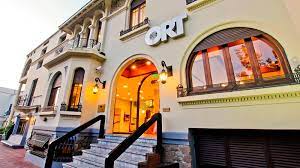
The Universidad ORT was founded in 1942 in Montevideo as a private technical trade school. Today, student enrollment is roughly 10,000 students with 7,000 being undergraduate students. ORT has two campuses; a downtown location and in the middle class neighborhood of Pocitos. USAC students attend classes on the Pocitos campus, which is modern and green. ORT is an international and non-denominational university.
Montevideo
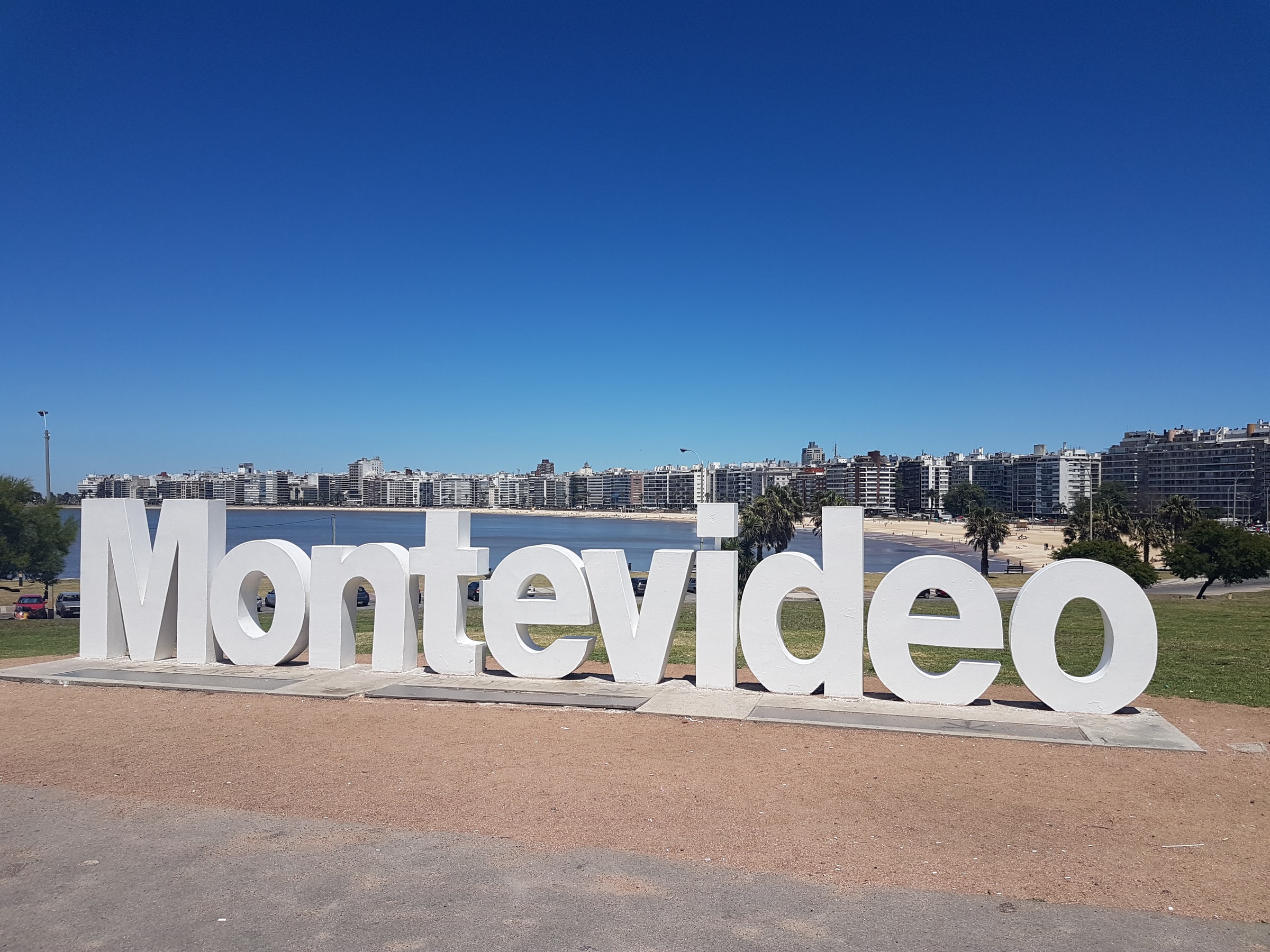
Montevideo is the capital of Uruguay and a port city. The city has a population of about 1.3 million, which is approximately one third of the country’s population. Because it sits on the north shore of the Rió de la Plata estuary, the city has a massive coastal promenade, La Rambla, that is rumored to be the longest sidewalk in the world. This is where locals enjoy strolling, exercising, and hanging out at one of the nine beaches and socializing. The city has a laid-back lifestyle, but has a robust music, theater, and arts scene. Montevideo has a humid subtropical climate with summer (December, January, and February) daily temperatures around 80°F and lows around 62°F. Winter (June, July, and August) sees daily high temperatures around 60°F and lows around 45°F.
Uruguay

The official name of the country is the Oriental Republic of Uruguay. It boarders Argentina to its west, Brazil to its north and east, the Rio de la Plata (River of Silver) to the south and the Atlantic Ocean to the southeast. The Portuguese established Colonia del Sacramento in 1680. This was one of the first settlements in the area. In 1724 Montevideo was established by the Spanish as a military stronghold, thus began the competing claims over the region. Uruguay won its independence in 1828. Today the country ranks first in Latin America in democracy and peace, and is the first in South America when it comes to freedom of press, size of the middle class, and prosperity.
US Department of State Country Information
The US Department of State provides safety and security information for every country of the world to help you assess for yourself the risks of travel. Each country information page contains a Travel Advisory, Alerts, and other important details specific to that country that could affect you.
Pay close attention to the entry and exit requirements, local laws and customs, health conditions, and other details to help decide whether traveling to any given country is right for you. Non-US citizen travelers may also wish to seek guidance from the embassy of their country of citizenship. The UI International Travel Policy for Students addresses restrictions on student travel to high-risk locations and engagement in high-risk activities abroad.
Living Arrangements
Students have two options: Homestays and Private Residence Hall.
- Homestays This is the option that is recommended. By living with a host family students are introduced to the culture and the language in an intimate manner. Language learning is intensified and happens quickly. This option also gives students a front row seat to the culture in practice. Students receive breakfast and dinner from their host family. Host families are within 20-30 minute commute to ORT University in Pocitos and are located in different traditional neighborhoods of Montevideo.
- Private Residence Hall The apartment complex is a high-rise that is a 10 minute bus ride from campus. USAC students share a furnished apartment and are responsible for their own meals.
Passport

US Citizens
If you do not have a passport, it is important that you apply for one as soon as possible to ensure you receive it before the program begins. US citizens can find more information about how to apply for a passport on the US Department of State’s website.
Students with a valid passport should check the expiration date. Passports must be valid for at least 6 months AFTER the anticipated return to the US from studying abroad. If your passport is not valid for at least 6 months after your anticipated date of return to the US, you must renew your passport before applying for a visa or leaving the United States.US citizens can find more information about how to renew a passport on the US Department of State’s website.
Travel Arrangements
Participants will make their own travel arrangements to Montevideo, taking advantage of any frequent-flyer options and/or internet specials available to them. Students should book airfare to correspond with the arrival and departure dates given by USAC.
Local Transportation

Montevideo is not a large city and it boasts a very efficient public transportation system so getting around is not difficult. Taxis are also available and are metered. Be aware that between the hours of 10 pm and 6 am, on Sundays and on Holidays, fares are 20% higher.
Eligibility
This program is open to UI students who fulfill the following requirements:
Good academic and disciplinary standing - It is the policy of the UI Study Abroad office that all students who study abroad must be in both good academic standing and good disciplinary standing at the time of their application. Students who, even after being accepted into a program, are put on either academic and/or disciplinary probation for any period of time overlapping with the study abroad program dates are ineligible to study abroad. In these cases, students must forfeit their acceptance and will not be allowed to study abroad. Any student who must forfeit their acceptance and/or attendance on a study abroad program due to a probationary status is wholly responsible for any and all financial expenses incurred.
Costs
Costs charged to the U-Bill
- Application fee (charged at the time of application, before financial aid/scholarships disburse)
- Course Fee- Includes program course fee, tuition, housing, meals, pre-departure advising, group flight airport pick-up, orientation,and program-organized field trips. (charged shortly before departure)
- University of Iowa Study Abroad Administrative Fee (charged shortly before departure)
- The mandatory Iowa Regents International CISI Health Insurance (charged shortly before departure)
Out-of-pocket costs (not charged to U-Bill)
- Food (paid by student at their discretion while abroad)
- Round trip airfare (paid by student directly to travel agent or airline- approx. 6-8 weeks prior to departure, before financial aid/scholarships disburse)
- Local transportation (paid at student’s discretion while abroad)
- Passport (paid by student prior to departure, before financial aid/scholarships disburse)
- Consular and visa fees (paid by student prior to departure, before financial aid/scholarships disburse)
- Textbooks, copyright permission fees, course packets, and other course-related materials (paid upoon arrival to your host country)
- Medical exam/immunizations (paid by student as needed prior to departure, before financial aid/scholarships disburse)
- Personal expenses and personal travel (paid by student as needed while abroad)
- Rental or purchase of required cell phone- does not include usage fees (paid as needed while abroad)
Cost Sheet
The cost sheet outlines the total estimated costs associated with participating in this program and can be used for financial aid and planning purposes. They include fees charged on students’ U-Bill as well as out-of-pocket expenses. Actual out-of-pocket expenses will vary from individual to individual. Quoted estimates are conservatively high, yet realistic.
Costs for future sessions are usually similar to the current session, however students can expect a modest increase in overall costs each session.
Semester
 USAC Montevideo Program - Spring 2026
USAC Montevideo Program - Spring 2026
Summer
 USAC Montevideo - Summer 2025
USAC Montevideo - Summer 2025
Winter
 USAC Montevideo, Winter 2025-26
USAC Montevideo, Winter 2025-26
Scholarships & Financial Aid
Most financial aid (scholarships, grants, and loans) is applicable to study abroad programs. Please check the Study Abroad website for information on financial aid and how it may be applied to studying abroad. You are also encouraged to speak with someone at the Office of Student Financial Aid to explore financial aid options. Scholarship opportunities exist for study abroad participants. Please explore Study Abroad’s websites for UI Study Abroad Scholarship Opportunities.
USAC funding opportunites are available for students participating in a USAC program. The comprehensive list of scholarships is detailed on USAC's Scholarships and Discounts webpage.
How to Apply
Steps to Studying Abroad
- Before initiating an application with USAC, students must complete a Discover Study Abroad session at the University of Iowa.
- After completing the Discover Abroad session, students will receive an email with their study abroad advisor assignment.
- Once assigned, students must meet with their study abroad advisor to receive program application instructions.
Students will need to complete a University of Iowa Study Abroad application and a USAC Online application. Information on these applications will come from the study abroad advisor. Final admissions decision is made by USAC.
Application Deadline
Fall and Academic Year: February 24
Spring: September 24
Summer: March 4
Winter: October 1
Preparation
It is highly recommended that students review the following information:
Health & Safety Planning
Visa
Additional Resources
Orientation
In order to prepare for your time abroad, you are required by the University of Iowa to complete two orientations. In addition to orientations provided UI Study Abroad, USAC may have other required pre-departure orientations and information. Please see below for more information.
Online Education Abroad Pre-Departure Orientation
You are required to complete the International Programs online “Education Abroad Pre-Departure Orientation” course distributed through ICON prior to departure. This orientation is mandatory for all students going abroad for University of Iowa purposes. It covers many practical matters about living overseas, such as health and safety, communication, money, goals and much more. You will be enrolled in this course by International Programs and an email will be sent to you once enrolled. If you have any questions you can email safety-abroad@uiowa.edu.
Program-Specific Orientation
This orientation will be facilitated by your study abroad advisor and will cover content specific to the University of Iowa including, but not limited to, billing, insurance, the Credit Approval Form (CAF), and transcripts. It could be conducted in a group setting or one-on-one depending on the type of planned activity abroad. Your study abroad advisor will send you more information about this mandatory in-person session.
USAC Orientation
USAC provides students with pre-departure documents in their USAC GATEWAY that include such topics as; Visa Guide, Arrival Guide, Site specific COVID guidelines, Pre-Departure Timeline, Packing Lists, Study Abroad Toolkit, and On-site wellness guide. In addition to the information on the USAC Gateway, USAC has a Virtual Orientation for students and parents and students will have one mandatory advising Zoom or phone session with USAC. Moreover, USAC has site-specific webinars with enrolled students and/or on-site staff.

